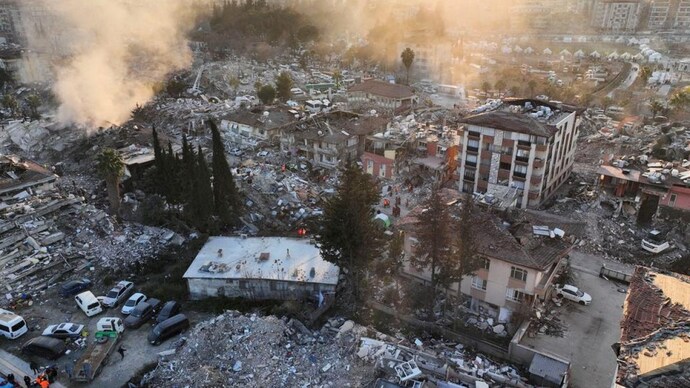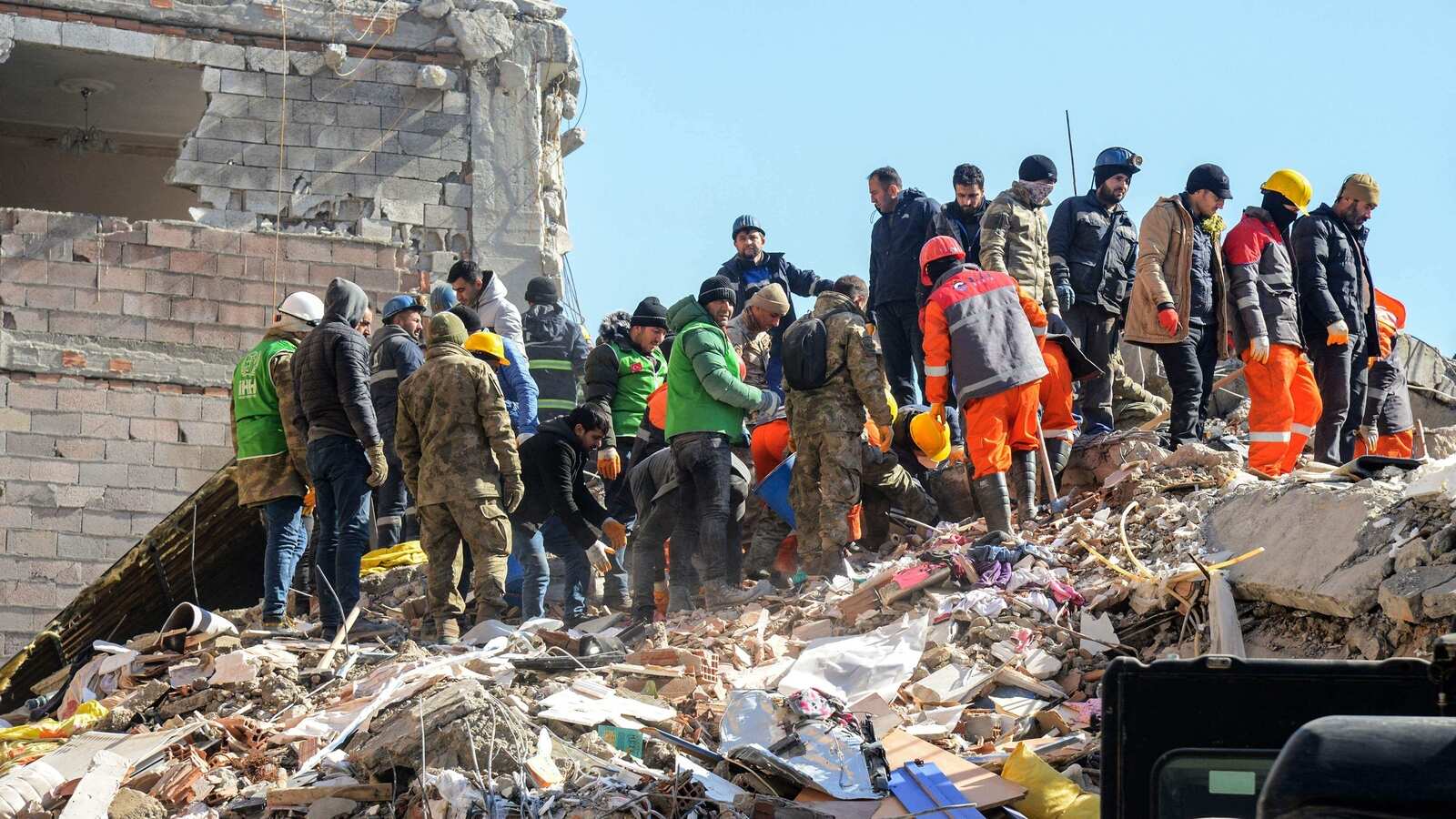The death toll from the massive earthquake in Turkey and Syria rose to 21,000 on Thursday, as the first UN aid arrived in Syrian rebel-held areas, but hopes of finding more survivors faded.
The World Health Organization’s chief said he was on his way to Syria as bitter cold hampered the search for thousands of flattened buildings and threatened the lives of many earthquake victims who lack shelter and drinking water.
Relatives were left scouring body bags laid out in a hospital car park in Turkey’s southern city of Antakya to search for missing relatives, an indication of the scale of the tragedy.
“We found my aunt but not my uncle,” Rania Zaboubi, a Syrian refugee who has lost eight members of her family, explained.
The chances of finding survivors have decreased now that the 72-hour mark has passed, which experts consider to be the most likely time to save lives.
“On my way to Syria, where WHO is supporting essential health care in the areas affected by the recent earthquake,” Tedros tweeted.
But in a potentially life-saving development, an aid convoy reached rebel-held northwestern Syria earlier in the day, the first since the quake, an official at the Bab al-Hawa border crossing told AFP.

Freezing temperatures
The crossing is the only way UN assistance can reach civilians without going through areas controlled by Syrian government forces. A decade of civil war and Syrian-Russian aerial bombardment had already destroyed hospitals, collapsed the economy and prompted electricity, fuel and water shortages.
UN Secretary-General Antonio Guterres has urged the Security Council to approve the establishment of new cross-border humanitarian aid points between Turkey and Syria. As part of a cross-border aid operation authorised by the Security Council nearly a decade ago, four million people living in rebel-held areas of northwest Syria have had to rely on the Bab al-Hawa crossing.
“This is a moment of unity; it is not a time to politicise or divide, but it is clear that we require massive support,” Guterres said.
Temperatures in the Turkish city of Gaziantep dropped to minus five degrees Celsius (23 degrees Fahrenheit) early Thursday, but thousands of families slept in cars and makeshift tents because they were too scared or prohibited from returning home.











More Stories
फराह खान का कुक बना शाहरुख खान का पार्टनर
Covid-19 Latest News: फिर पैर पसारने लगा कोरोना, अब महाराष्ट्र में आए 33 नए केस, इस बार कितना है खतरा?
Karnataka Criticized for Selecting Tamannaah Bhatia as Brand Ambassador for Mysore Sandal Soap